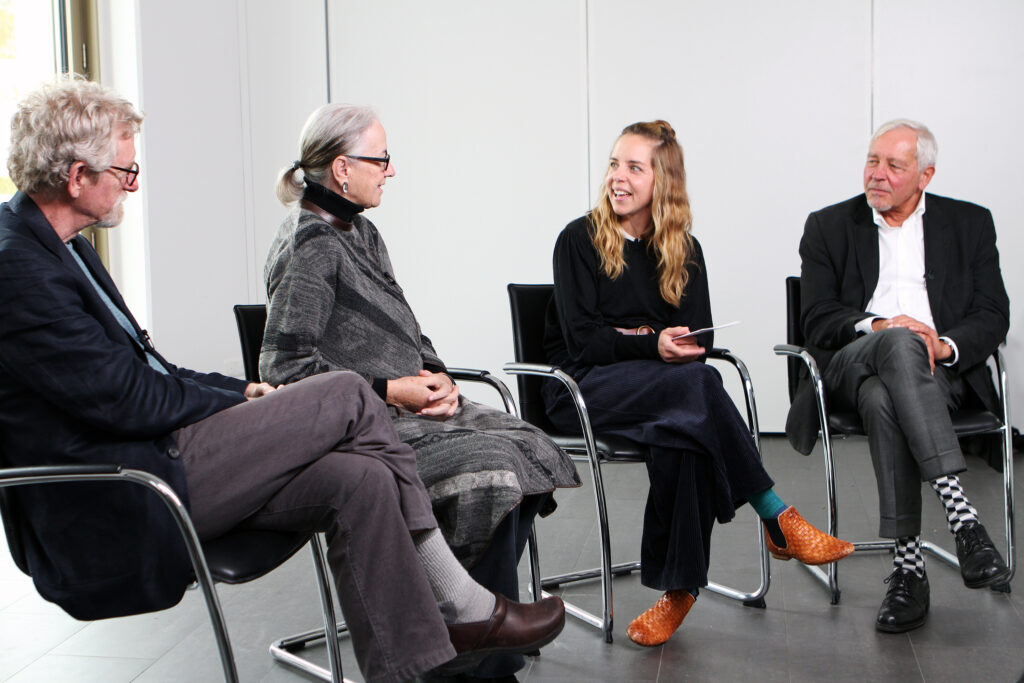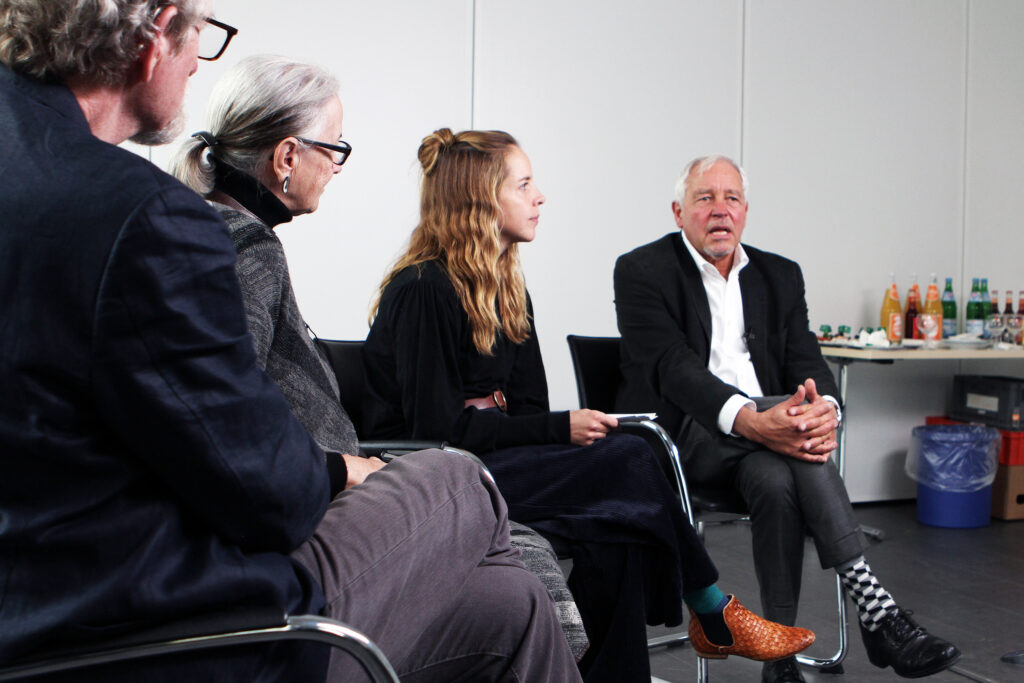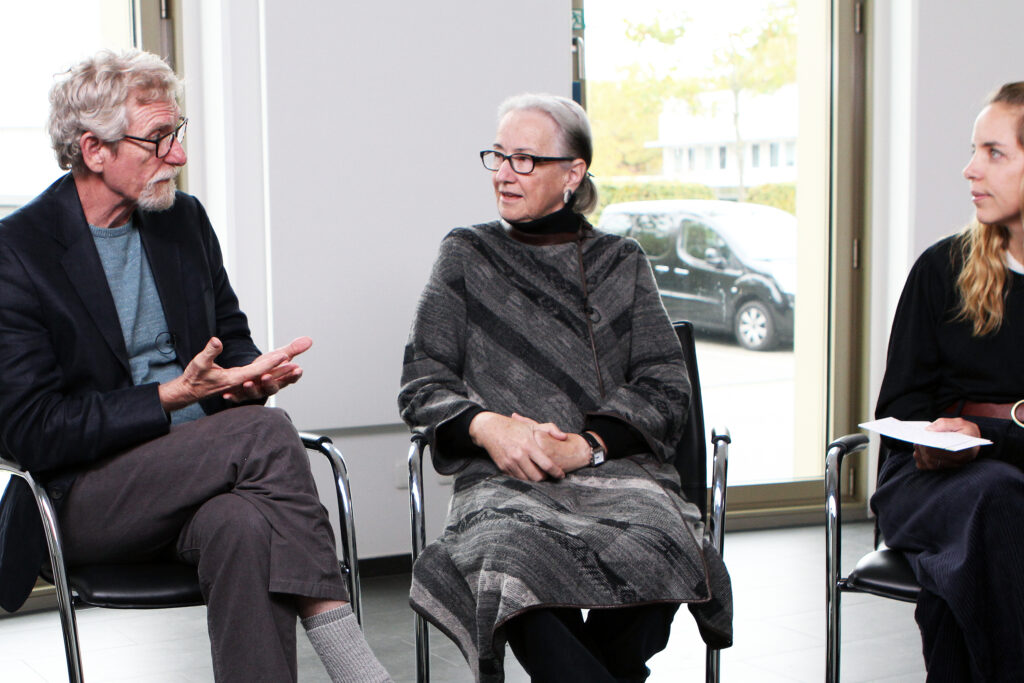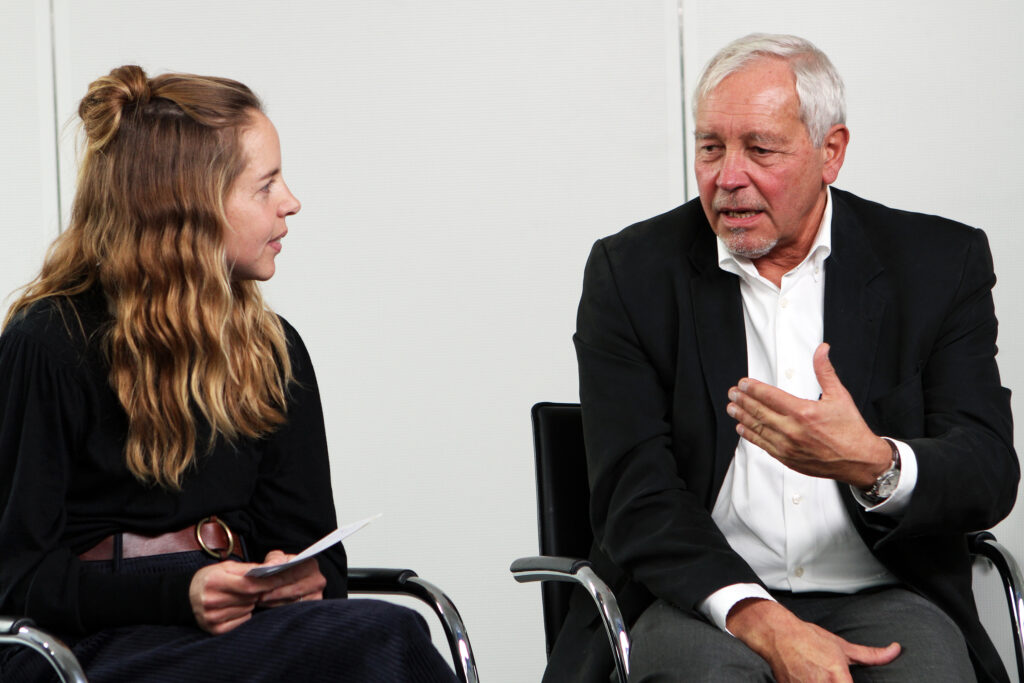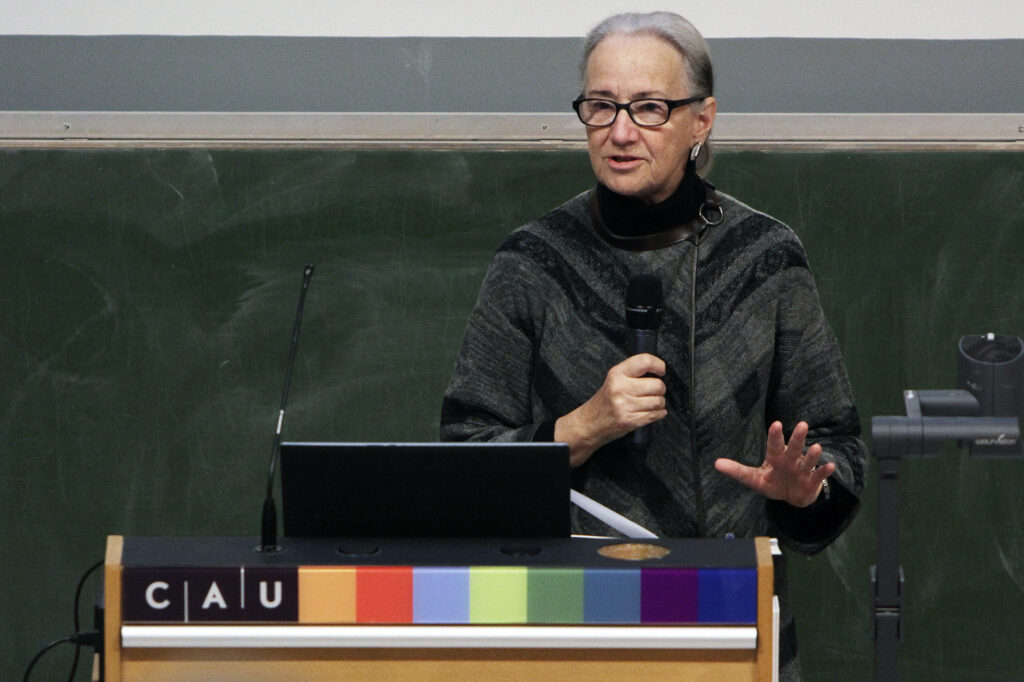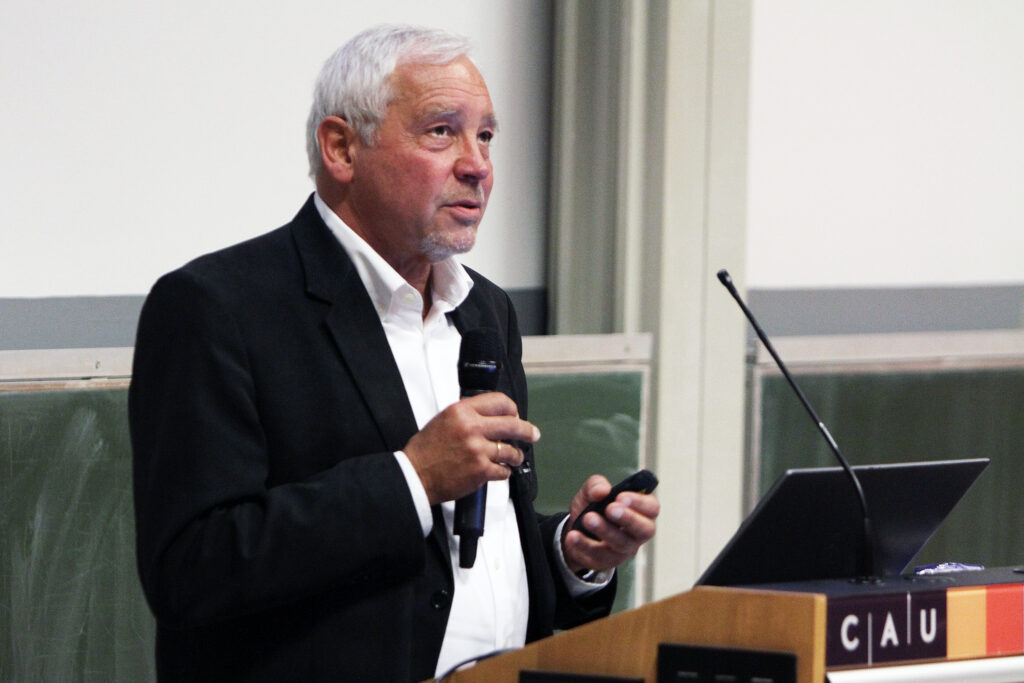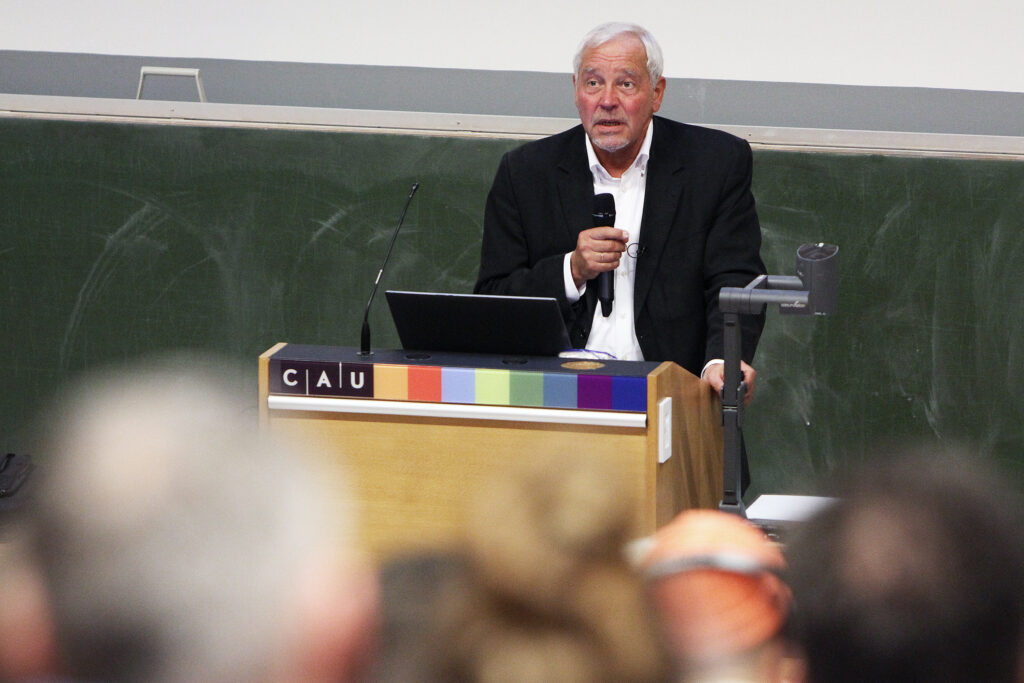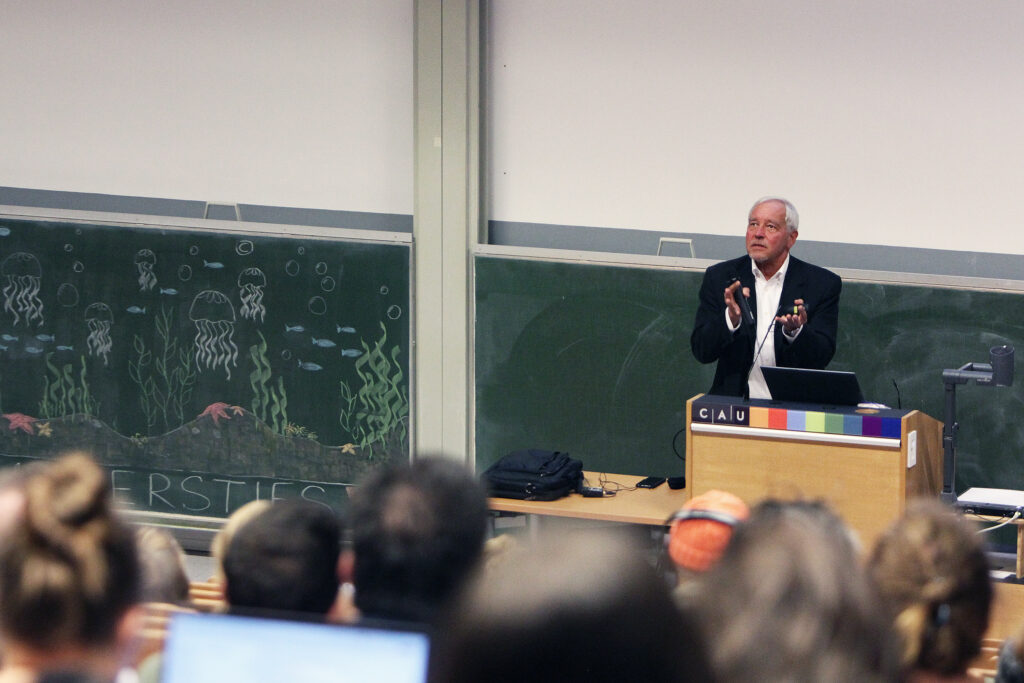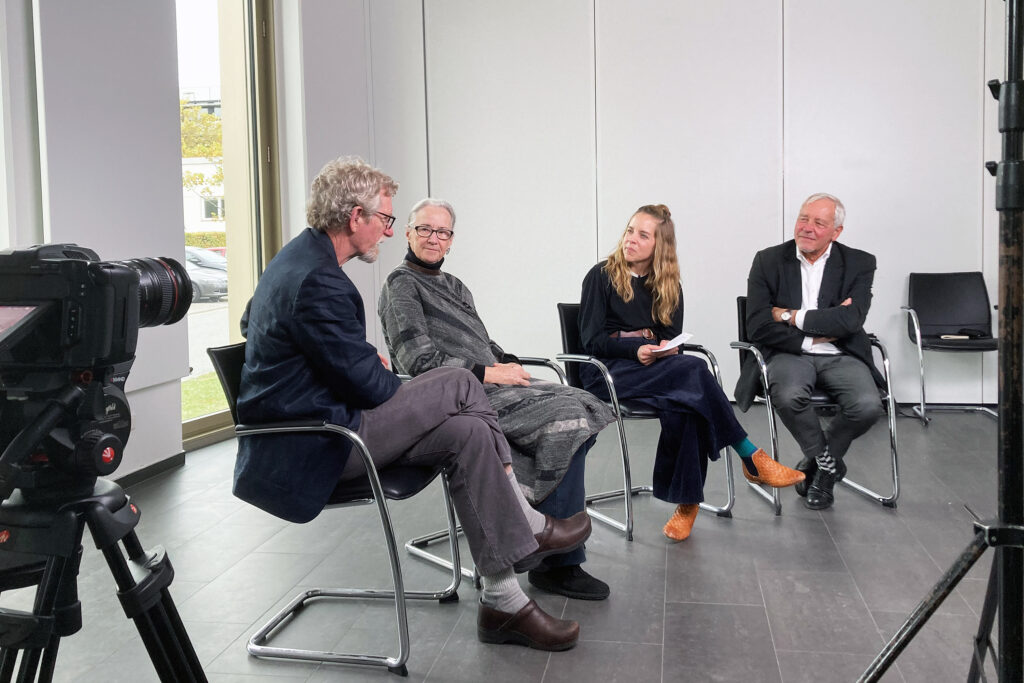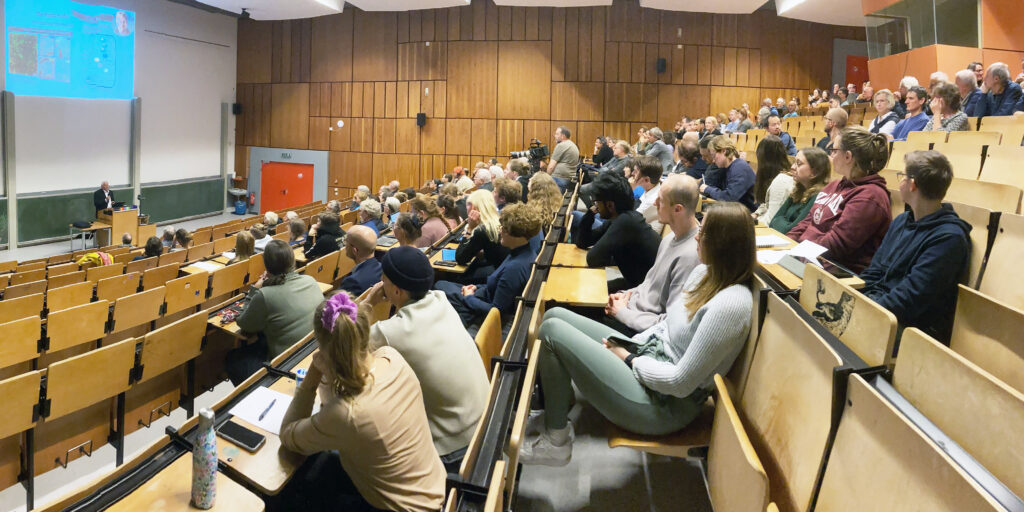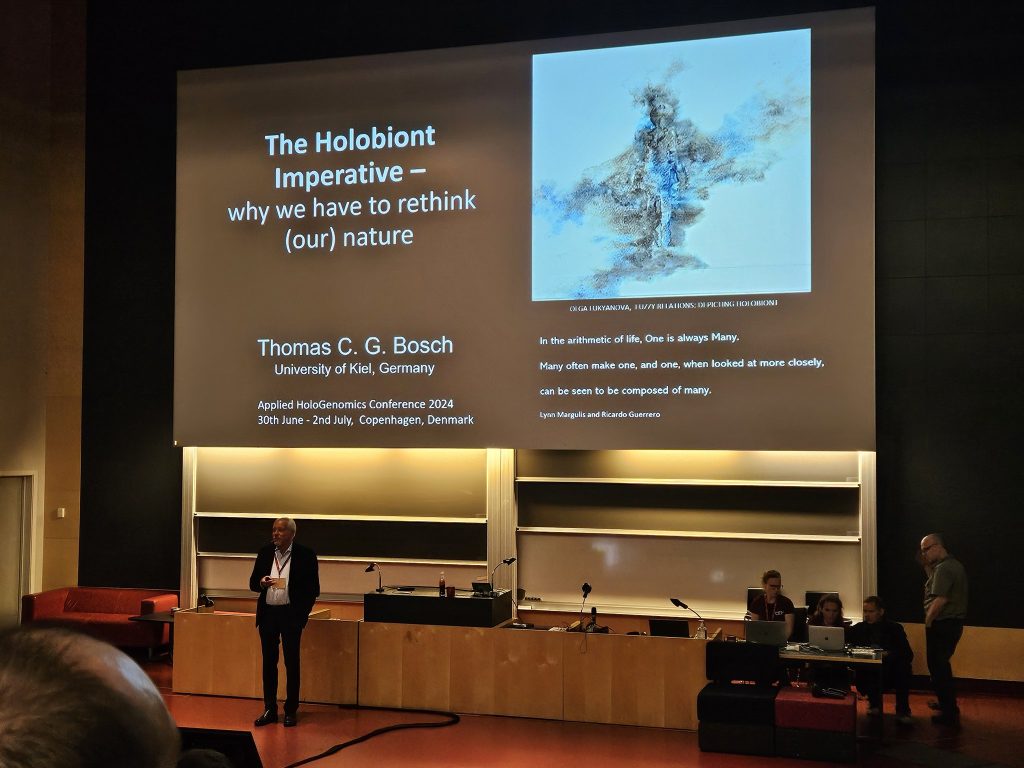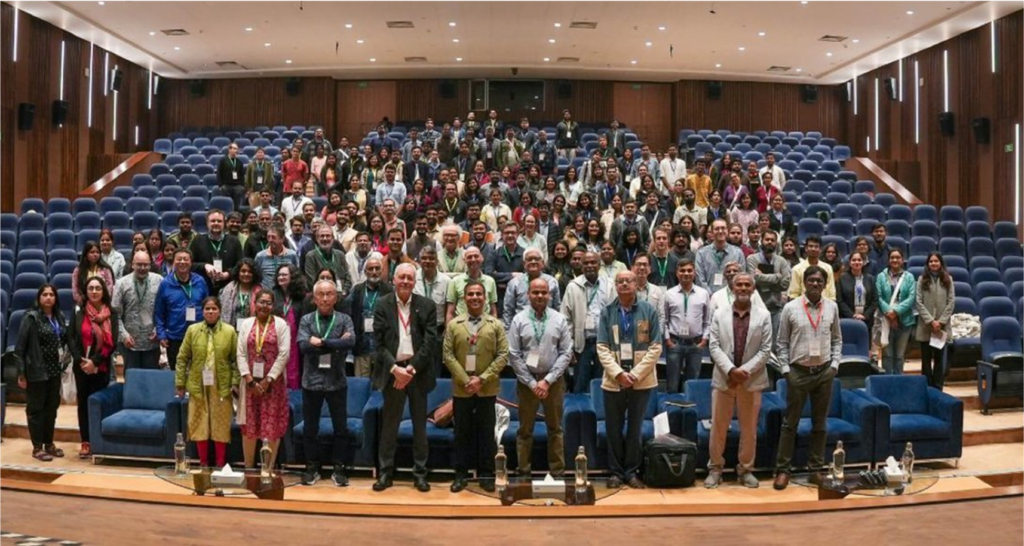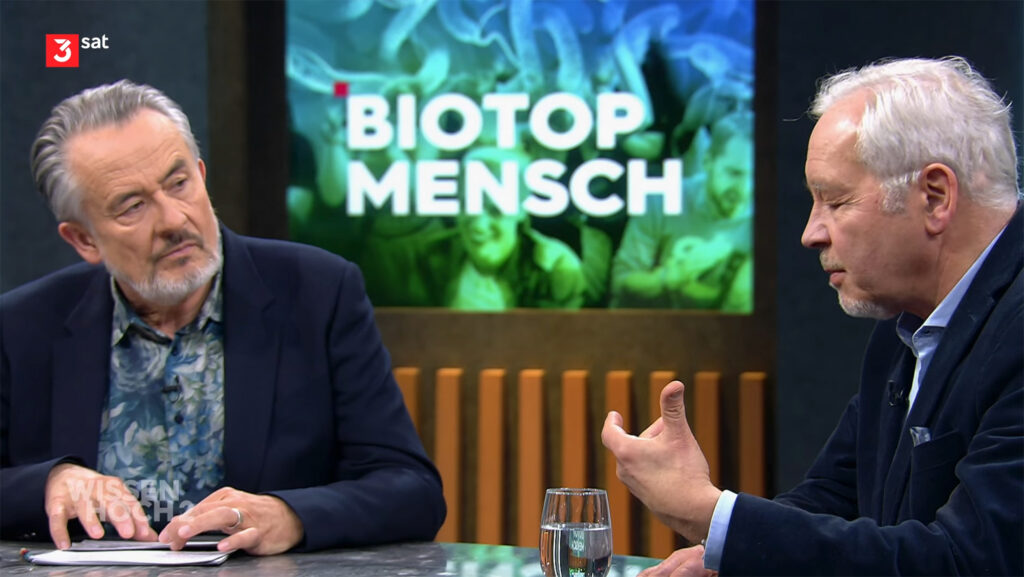Discussing the Holobiont Imperative with Margaret McFall-Ngai and Ned Ruby
Recently, a day devoted to the discussion of the holobiont imperative, a revolutionary scientific view on multicellular life as a functional symbiosis between hosts and their colonizing microorganisms, took place at Kiel University. All animals and plants are inhabited by microbial organisms. Together, they form a metaorganism that shapes most life processes and ultimately determines health and disease. Science only recently began to increasingly accept this holobiont principle as a defining factor of life.
Professor Thomas Bosch, speaker of the priority research area Kiel Life Science and Founding Chair of the CRC 1182 “Origin and Function of Metagorganisms” at Kiel University, invited world renowned experts and long-time fellows Professor Margaret McFall-Ngai and Professor Ned Ruby to have a conversation about their views on host-microbe research. Moderated by Dr. Susanne Landis, scientific lead at the Science Communication Lab in Kiel, McFall-Ngai, Ruby and Bosch discussed the history, perspectives, potentials and future applications of the research field they together helped to shape over the past decades.
Later, Bosch presented his lecture “The Holobiont Imperative – The Discovery of an Invisible World” to an audience of colleagues and friends in life sciences in Kiel. Looking back on his more than 20-year career at Kiel University and looking forward to future perspectives, Bosch shared his thoughts on an important research field that continues to gain importance as a fundamental concept in the life sciences.
